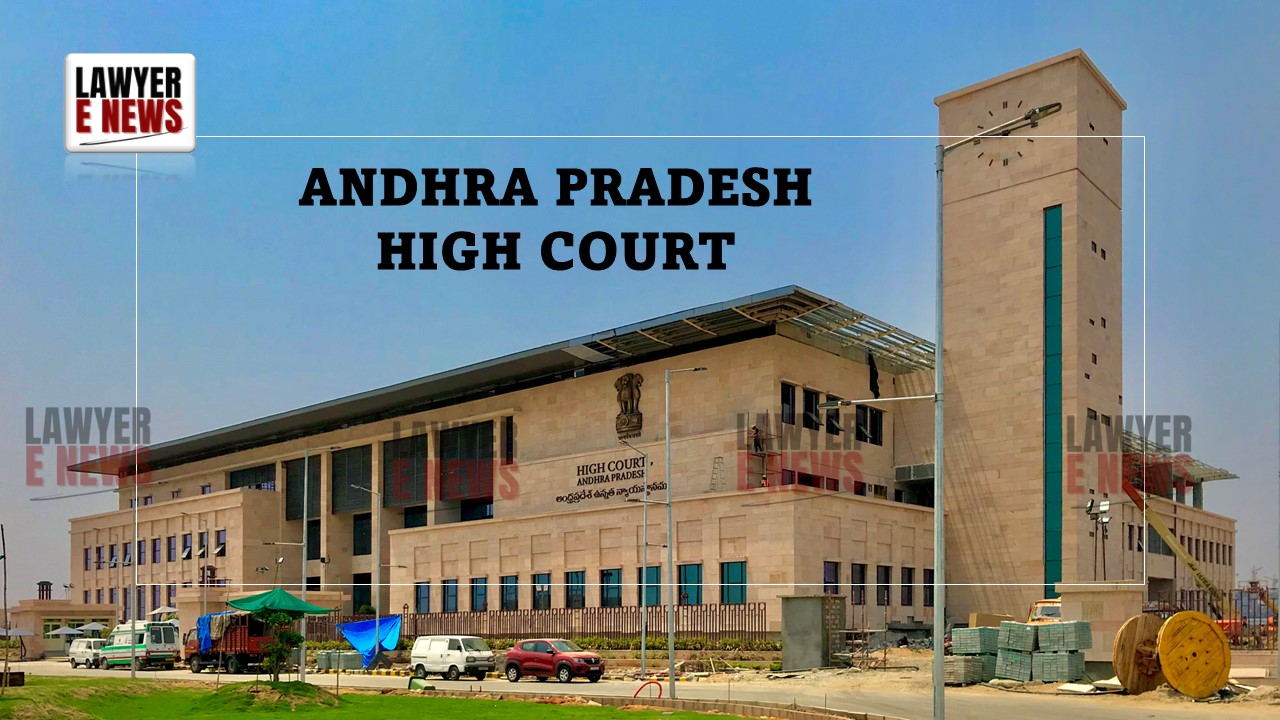-
by Admin
15 February 2026 5:01 PM



Revenue Records Cannot Confer Ownership Without Corroborating Evidence -Andhra Pradesh High Court dismissed the second appeal. The case revolved around the appellants' attempt to establish ownership over property belonging to the American Baptist Foreign Mission Church. The court ruled that the plaintiffs had failed to prove their vendor's title and that church property could not be alienated without proper authorization. The judgment reaffirmed that in declaratory suits, the burden of proving ownership lies on the plaintiff, who must present clear and unequivocal evidence.
The High Court upheld the decision of the first appellate court, which had reversed a trial court decree granting declaratory relief and permanent injunction to the plaintiffs. Justice Rao observed, “Unless the findings of the first appellate court are manifestly perverse, based on inadmissible evidence, or contrary to established legal principles, interference in a second appeal is unwarranted under Section 100 of the Code of Civil Procedure.”
The appellants had filed O.S. No. 69 of 2008 in the II Additional Senior Civil Judge’s Court, Nandyal, seeking a declaration of title over agricultural land in Pesaravai village, Kurnool District, and a permanent injunction to prevent interference by the defendants. The appellants claimed to have purchased the disputed property through a registered sale deed dated July 24, 1987, executed by private individuals. To support their claim, they relied on revenue records, including pattadar passbooks and land revenue receipts.
The defendants, however, argued that the land in question belonged to the American Baptist Foreign Mission Church and was not alienable. They pointed out that the plaintiffs' vendors had no title to the property and that the sale deed was invalid. The trial court had ruled in favor of the plaintiffs, granting declaratory relief and a permanent injunction. However, on appeal, the III Additional District Judge, Nandyal, reversed this decision, finding that the plaintiffs had failed to establish title.
In the present second appeal, the plaintiffs argued that the first appellate court had erred in its judgment and that their title had been improperly rejected.
"Declaratory Relief Requires Clear Proof of Title"
The High Court reiterated that in suits seeking a declaration of title, the plaintiff must establish ownership through clear and convincing evidence. Justice Rao held:
“It is trite law that in a suit for declaration of title, the burden always lies on the plaintiff to make out and establish a clear case for granting such a declaration. The weaknesses, if any, of the case set up by the defendant would not be a ground to grant the relief of declaration of title in favor of the plaintiff.”
The court noted that the plaintiffs relied on a sale deed executed by their vendors, but their vendors had no legal authority to sell the property. Justice Rao remarked, “The plaintiffs’ own vendor admitted that the property belongs to the church and that he had no right to alienate it. These admissions negate the plaintiffs’ claim to title.”
"Revenue Records Alone Do Not Confer Ownership"
The plaintiffs relied on pattadar passbooks, revenue records, and land revenue receipts to support their claim. However, the court ruled that such documents are insufficient to prove ownership in the absence of corroborating evidence. Justice Rao observed,
“Entries in revenue records, though relevant under Section 35 of the Indian Evidence Act, are not evidence of title. Payment of land revenue also does not confer ownership rights.”
The court referred to earlier decisions, including the Division Bench ruling in Ramanna v. Samba Murthy (AIR 1961 A.P. 361), to emphasize that revenue records merely reflect possession and not ownership.
"Admissions by the Plaintiffs' Vendor Undermined Their Case"
The plaintiffs’ vendor, examined as PW-3, admitted that the disputed property belonged to the church and that he and the other executants of the sale deed had no authority to sell it. Justice Rao highlighted these admissions as critical to the outcome:
“The plaintiffs’ vendor admitted that the suit property and the property belonging to the church are one and the same. He further admitted that the property stands in the name of Reverend Stanton Dora, representing the American Baptist Foreign Mission Church.”
The court concluded that the plaintiffs’ vendor had no title to the property, making the sale deed relied upon by the plaintiffs invalid.
"Church Property Cannot Be Alienated Without Authorization"
The court emphasized that property belonging to religious institutions like the American Baptist Foreign Mission Church is not alienable without proper authority. The High Court referred to Ex.B-9 (Rights of Holdings) and Ex.B-10 (Re-survey Settlement Register), which recorded the property in the name of Reverend Stanton Dora on behalf of the church.
Justice Rao stated: “The evidence clearly establishes that the property belongs to the American Baptist Foreign Mission Church and is not alienable. The plaintiffs have failed to provide any valid authorization for the sale of church property.”
The High Court dismissed the second appeal, upholding the first appellate court’s decision to reverse the trial court’s decree. Justice Rao concluded:
“Since the plaintiffs are not entitled to the main relief of declaration of title, the question of granting consequential relief of permanent injunction does not arise. The judgment and decree of the first appellate court are perfectly sustainable under law and require no interference.”
The court further observed that no substantial question of law arose in the second appeal, as the first appellate court’s findings were based on a proper appreciation of evidence.
Date of Decision: January 23, 2025
